I'm using a query to pull the valuation cost of projects. It works well, except sometimes it returns multiple rows for a valuation.
How can I modify my query to get only the most recent record to avoid multiple rows?
Query
SELECT
to_char( BVALUATN.G3_CALC_VALUE, '$999,999,999,999,999' ) AS "Valuation",
TO_CHAR( G6ACTION.G6_ACT_DD, 'mm/dd/yyyy') AS "Final Date"
FROM PERMIT
LEFT OUTER JOIN G6ACTION G6ACTION
ON (PERMIT.B1_PER_ID1 = G6ACTION.B1_PER_ID1)
AND (PERMIT.B1_PER_ID3 = G6ACTION.B1_PER_ID3)
LEFT OUTER JOIN BVALUATN BVALUATN ON (PERMIT.B1_PER_ID1 = BVALUATN.B1_PER_ID1 AND PERMIT.B1_PER_ID3 = BVALUATN.B1_PER_ID3)
WHERE TRUNC (G6ACTION.G6_ACT_DD) > TO_DATE ('01/01/2020', 'mm/dd/yyyy')
AND TRUNC (G6ACTION.G6_ACT_DD) < TO_DATE ('04/06/2022', 'mm/dd/yyyy')
ORDER BY "Valuation" DESC;
Output
Desired Output
I'm interested in seeing various suggestions to see what works best for different use-cases, e.g., using an aggregate function, subquery, etc. Thanks for any help.
I am using Oracle Database version 12.1.0.2.0.

